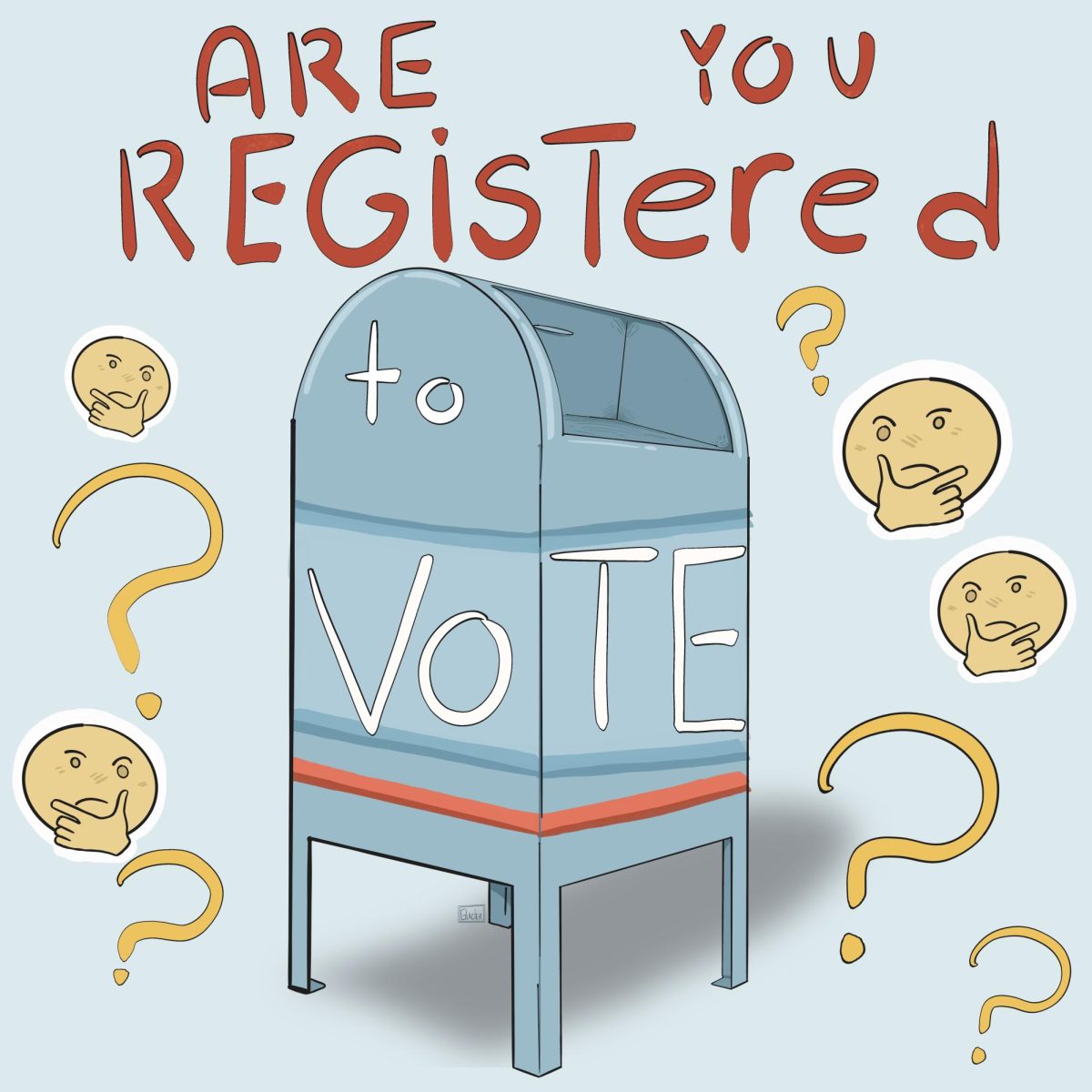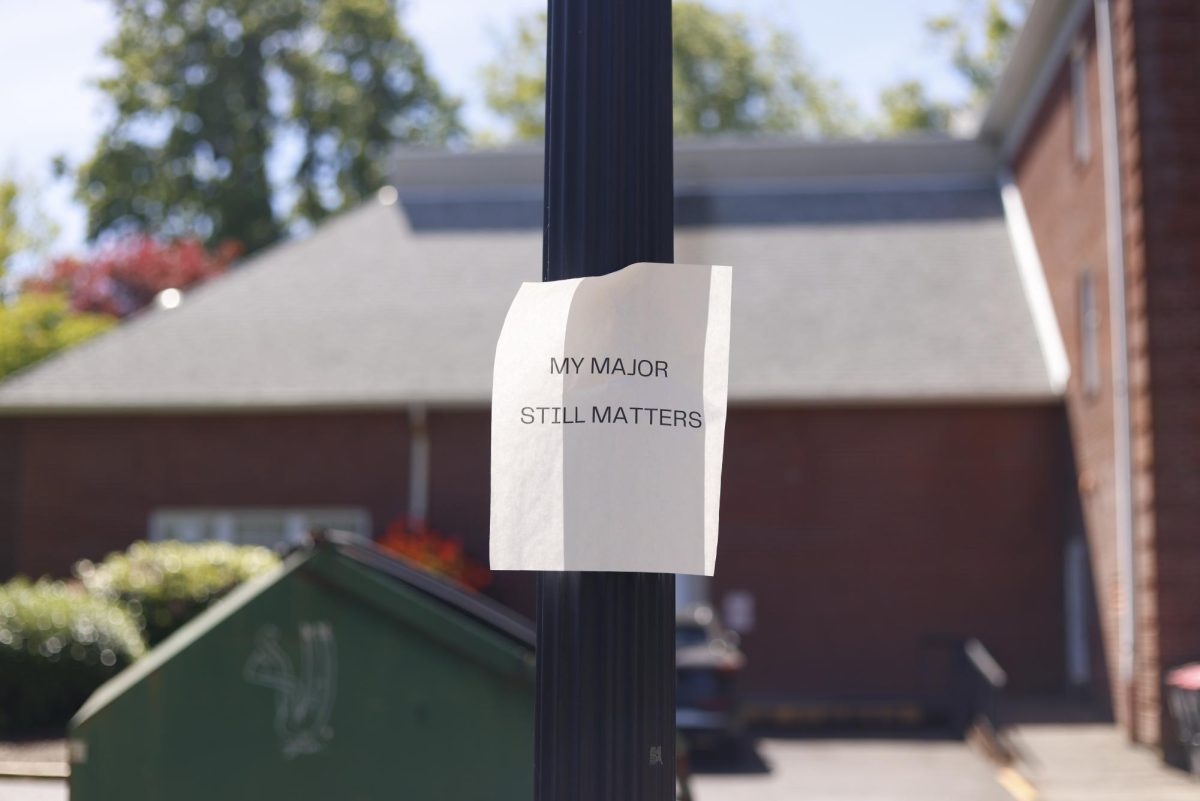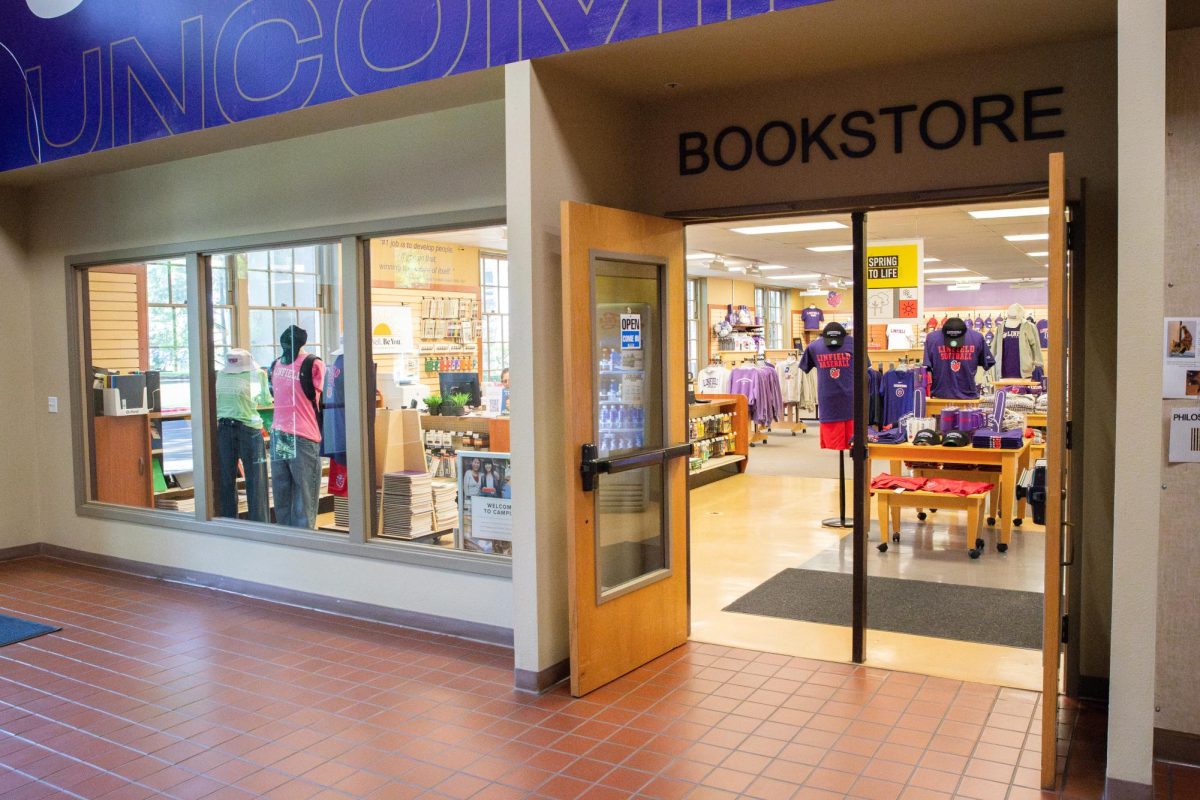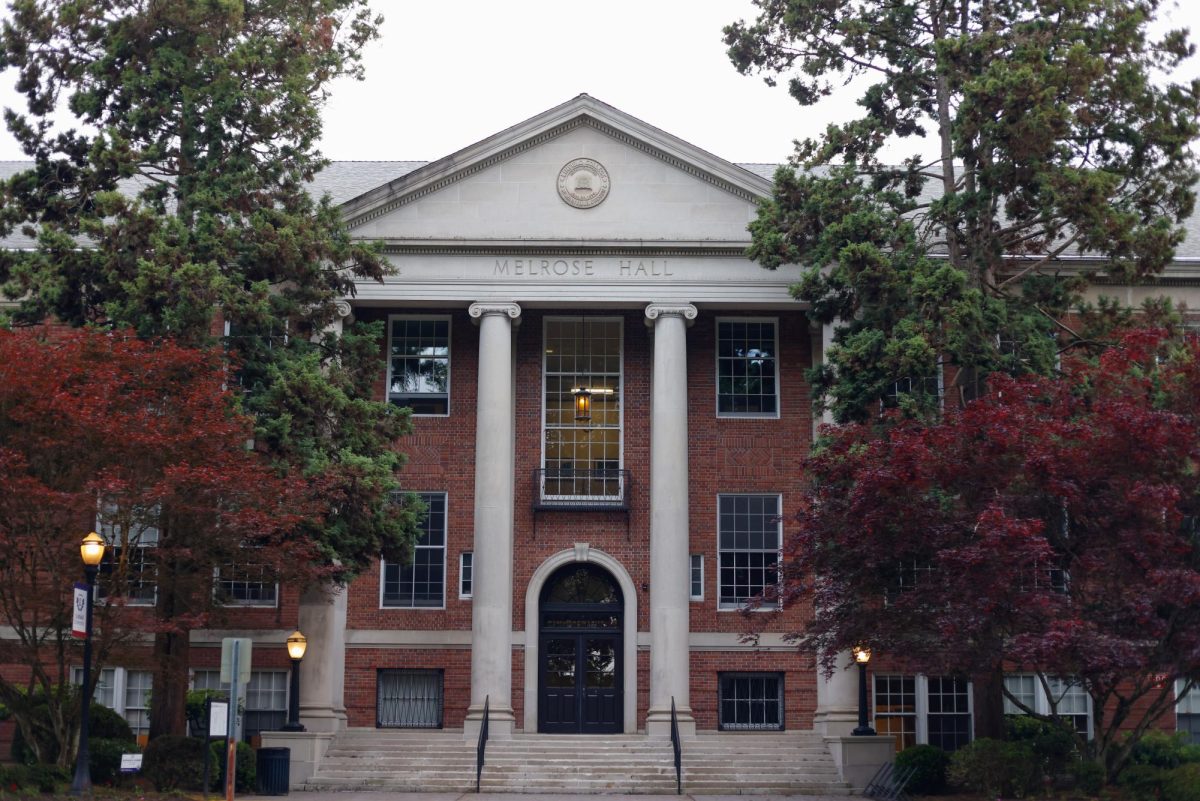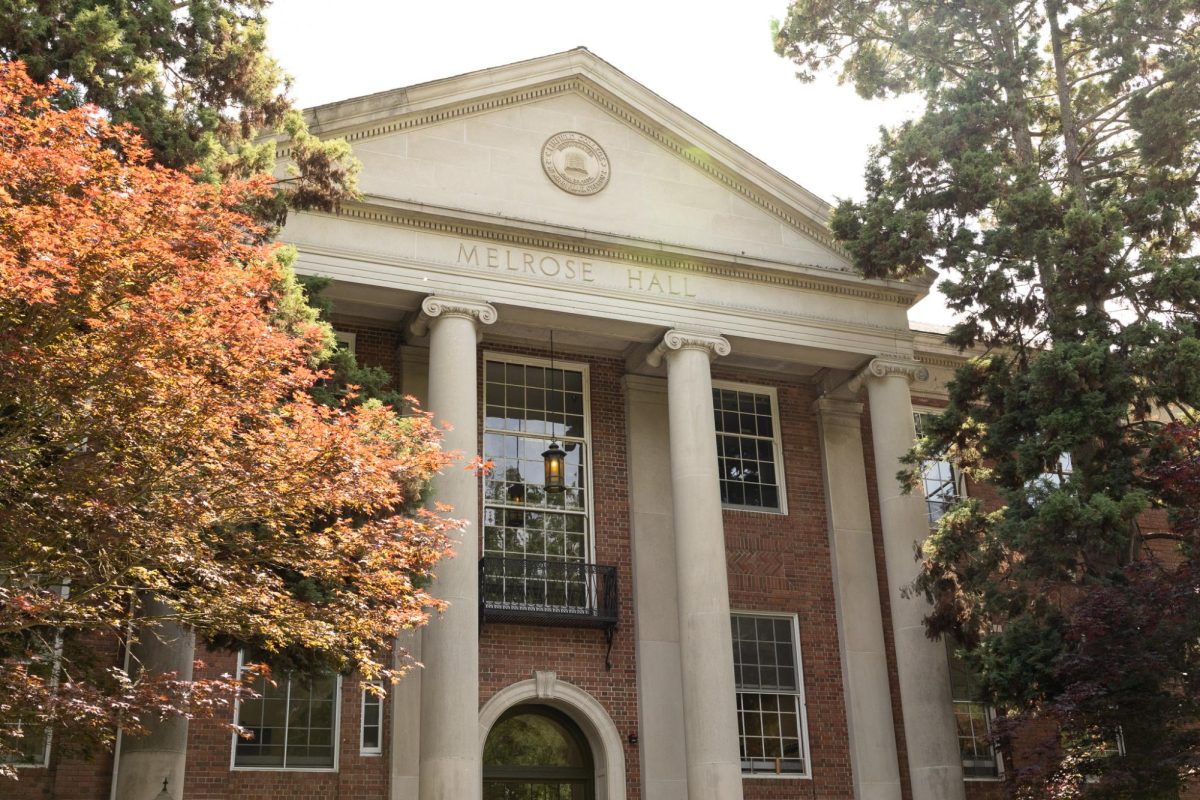Politics in college life has undoubtedly been thrust into the spotlight in recent months by the emergence of the Israel-Hamas war. Protests have led to a collective reckoning of political and social views on campuses such as Columbia and Yale. Students are becoming more and more aware of the political issues around them, while more broadly Americans are becoming increasingly polarized over political matters.
This has led to some students using innovative ways of participating in politics breaking party lines. “I’m not a Republican, but I am registered as one,” explains Ash Bates. “My whole family does this… so we can vote for whatever Republican we prefer. I do classify myself as a democratic socialist, so it’s a bit of a funny story. I would rather my vote go to a Republican who is less insane, something I hope that will have the most impact on the government.” Bates is a junior with an anthropology major.
This seemingly cavernous political divide, aided by partisanship increasingly following racial, ethnic, geographic and educational lines, has led to the disenfranchisement of voters. A recent Pew Research Center study found that about six in ten U.S. adults found “not too much or no confidence in the future of U.S. politics.”
“I mean, if we continue to not innovate… we’re going to go nowhere and implode. People are frustrated, people want their voices heard and no one is hearing them” is one opinion voiced by Felicity Fulton, a Linfield senior and creative writing major, a registered Democrat in Washington.
This sour outlook was shared by another Linfield student. “I wish I saw more interest from people my age,” said Hadley Dunham, a sophomore law rights and justice major and psychology minor. Dunham is a registered Republican.
Students also had opinions about the two candidates who are assured to be the main primary challengers: Former President Donald Trump and current President Joe Biden.
“Different decisions need to be made with who’s in charge,” said Eliana Hartman, a registered independent and a freshman who’s studying nursing. “Old people tend to not be open-minded like the new generations. It’s a representative issue, they may not be able to understand what the actual problems may be.”
“There’s a bunch of old people in our government. In my opinion, they shouldn’t be able to run the country because of their age. The United States government is an old folks home. They aren’t representative of us. We see people in Utah try to raise the voting age, and it’s because they know we won’t vote for them. They’re completely disconnected to the people they serve,” said Bates.
A study in 2016 by the National Study of Learning, Voting and Engagement found that over 70% of students on college campuses were registered to vote. However, the interest in becoming politically literate or engaged is low on campus.“They may have other interests like biology, but biology won’t rule the country,” stated Dunham.
“(Politics) makes me sad. Certain rights, life for women, have been removed so I’ve been slowly losing interest,” said Hartman. This disinterest for some stems from a feeling of hopelessness about the future of politics.
“I see a lot of patterns… It genuinely concerns me. I am no longer in the general education system, and I’m glad, since I’m not the one affected by the book bannings and the information restrictions on what students are allowed to learn. I’m not super confident (in the future). Actually, terrified about the future,” said Bates.
While the future may seem bleak in some students’ eyes, there is still hope. Generation Z is over about 20% of the US population, and many of them are politically active or want to be. The first step to becoming a more informed and involved voter is just to register to vote in the first place.
USAGov has guides on how to register in federal, state, and local elections. Voter guides like Ballotpedia, Vote411, and BallotReady all provide information on what’s on the ballot, information about people who are running, and ways to check if you are registered to vote. There are many avenues for students to become more politically active, and voting is one of the best ways to do so.
Categories:
Registered Voters on Campus Share Outlook on Upcoming 2024 Election Season
More to Discover
About the Contributors
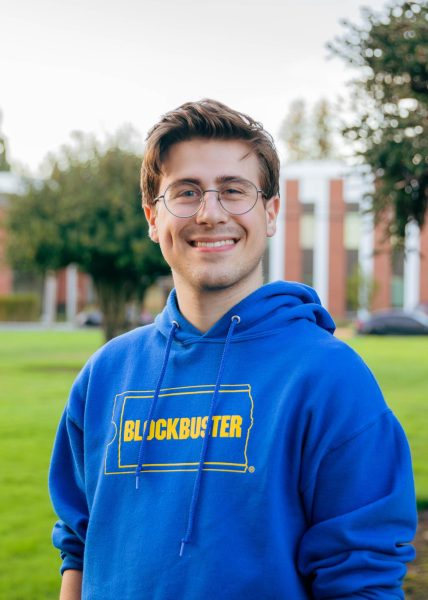
Andrew Beauchamp, News Editor
Andrew Beauchamp is a journalism and political science double major from Eugene, Ore. Andrew enjoys photography, reading and writing. When not editing a story for the Review, he might be at work as a lead librarian at the Nicholson library or taking photos at events for strategic communication. After leaving Linfield, Andrew hopes to travel the world writing stories and taking photographs.
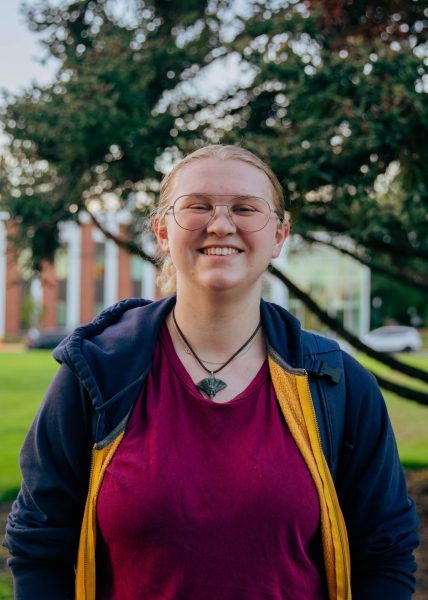
Ailsa McLay-Kidd, Cartoonist
Ailsa is a sophomore from Bend, OR. She’s a digital art as well as journalism, art and media studies major. On her first tour at Linfield, she heard the mail room had AC so she quickly applied for a job there. Ailsa loves the Japanese media culture, and she is an aspiring comic book artist. Travel has been a constant in her life, her paternal family all live in the UK, and she has traveled extensively through Europe, Africa, and the Americas, but still hasn’t made it to Japan, that next!

